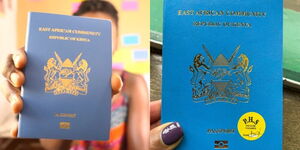The government has proposed to introduce new regulations aimed at streamlining the timber industry by tightening control over exports, imports, and the grading of forest products.
The policies outlined in the Forest Conservation and Management (Export and Import) Rules, 2025, and the Forest Conservation and Management (Grading and Valuation) Regulations, 2025, are expected to impact timber prices, trade, and supply chains across the country.
Kenya has long been a significant producer of timber, with forests in regions such as the Mau, Kakamega, and Aberdares providing wood for both domestic use and export. However, the industry has faced challenges, including illegal logging, unsustainable harvesting, and fluctuating prices due to inconsistent regulations.
The new policies are designed to bring order to the sector by ensuring that all timber is properly graded and that both imports and exports follow strict guidelines.
Under the proposed regulations, traders and exporters must obtain permits from the Kenya Forest Service (KFS) before transporting timber. Exporters are also required to present a grading certificate, proving that their timber meets specified quality standards. These measures aim to prevent the export of substandard wood and increase the value of Kenyan timber in international markets.
Kenya imports a notable portion of its timber from neighbouring countries, particularly the Democratic Republic of Congo (DRC) and Tanzania. With the demand for timber rising due to construction and manufacturing, imports from these countries have become crucial to bridging the supply gap.
However, the proposed rules introduce stricter documentation requirements for imported timber, ensuring the traceability and legality of forest products entering the country. The changes are expected to affect timber prices both locally and internationally. By imposing stringent grading standards, low-quality timber may be phased out of the market, potentially driving up costs for traders and consumers.
However, proponents argue that higher-quality timber will fetch better prices and strengthen Kenya's position in global markets. The government maintains that these regulations will create a more structured and transparent industry.
A key component of the reforms is the grading and valuation of timber and other forest products. The regulations set out detailed criteria for assessing timber quality, including moisture content, grain structure, and strength. "No person shall export any forest product unless such person has been issued a grading certificate in accordance with the Grading and Valuation for Timber and Other Forest Products Regulations," the proposed rules state.
Kenya exports timber to various markets, including the Middle East, Europe, and Asia. With the proposed regulations, exporters will need to provide proof of origin, grading certificates, and compliance with Kenya Revenue Authority (KRA) tax requirements. These measures are expected to streamline exports, reduce smuggling, and improve Kenya's reputation as a supplier of high-quality timber.
For domestic consumers, the impact on timber prices remains uncertain. On one hand, improved quality assurance could lead to better products for buyers. On the other hand, stricter compliance requirements might increase costs for traders, potentially making timber more expensive for consumers. The government insists that the reforms will ultimately stabilise prices by eliminating illegal logging and promoting sustainable practices.
The requirement for movement permits within Kenya could also affect supply chains. Traders moving timber between counties must now obtain authorisation from relevant authorities, a step aimed at curbing illegal harvesting and transportation. While this may slow down logistics, authorities argue that it is necessary to protect forests from depletion.
The Ministry of Environment, through Cabinet Secretary Aden Duale, is seeking input from Kenyans on these laws that are set to go through the legislative process in Parliament. "Further, the Ministry of Environment, Climate Change, and Forestry invites members of the public to a virtual public meeting, which will be held on 2nd April 2025 from 8 am to 5 pm. A link will be shared on the Ministry website and social media platforms before then," said Duale in the notice on Tuesday.












